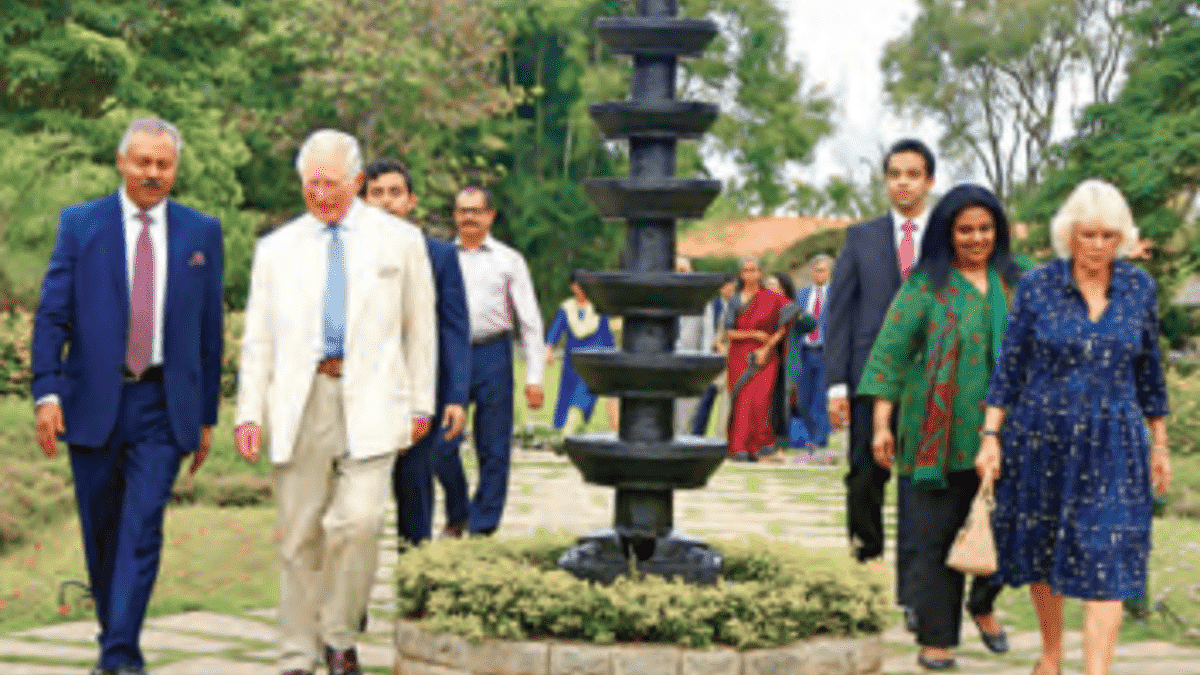London Diary: An Indian success story
It has emerged that British Indians not only earn more than any other immigrant group, but their average earnings are more than those of their white peers

An Indian success story
No, it’s not the ‘Sunak effect’, but should add to the positive mood around the Indian diaspora. It has emerged that British Indians not only earn more than any other immigrant group, but their average earnings are more than those of their white peers. And, remarkably, this at a time when racial discrimination is said to have increased resulting in a ‘substantial’ pay-gap between white Britons and ethnic groups.
A study by the Institute for Fiscal Studies (IFS), a leading independent thinktank, found that despite improved educational attainment among south Asians and black African groups over the past decade, minorities still trail white people on wages.
“Most minority groups continue to earn less than their white British counterparts, and all earn less on average than we would expect given their education, background and occupation. Evidence of discrimination in the labour market is clear, and wealth inequalities are likely to prove especially hard to shift,” said Professor Heidi Safia Mirza of University College London.
However, the average British Indian man earned 13 per cent more than the white average man.
“Indian men, both immigrant and UK-born, have enjoyed rapid average wage growth. Black Caribbean men have not,” the study said.
In contrast, the average weekly earnings of Bangladeshi men were 42 per cent below the white average in 2019; the figure was 22 per cent for Pakistani men and 13 per cent for Caribbean men.
The findings are consistent with previous studies that Indian immigrants are better educated, more aspirational and professionally successful than other South Asian communities. Rishi Sunak’s meteoric rise confirms the British Indian success story.
Royal retreat
A British travel writer, Caroline Phillips, who visited Soukya, an exclusive health retreat in Bangalore frequented by Hollywood stars and British royalty, has written a critical piece in The Times about her 21-day stay which cost her “£12,000 plus extras”. She recalls that after she returned home, she got an email from its founder Isaac Mathai.
“He apparently checks guests’ tips to therapists, keen to ensure that their £80-a week salaries are supplemented. He wrote: ‘While you were here other guests tipped around £300 to £500 per person for only a 14-day stay. Your tip of £80 is too low’.”
No to Indian languages
Indian expats may be doing well, but take-up of Indian languages in British schools is on the decline with official figures showing a sharp drop in the number of pupils studying Gujarati, Bengali and Punjabi in recent years.
Between 2015 and 2021, the number of students choosing these languages for the General Certificate of Secondary Education (GCSE)—similar to secondary school board exams in India—fell drastically. Gujarati saw the biggest decline with 77 per cent, Bengali at 66 per cent, Punjabi at 45 per cent and Urdu at 37 per cent.
But, intriguingly, calls for action to do something about it have come not from Indian community leaders, but from British politicians. The initiative is being led by Labour Party’s Gareth Thomas, a Member of Parliament for London’s Harrow West constituency, a prominent Gujarati suburb.
“The teaching of South Asian languages is critical to Britain’s economic future as well as an opportunity for academic excellence among young people in our country,” he said calling for ring-fenced funding, specialist training of teachers, support for community schooling and specialist teacher training are needed to stem the decline.
“Ministers’ failure to invest in these languages is leading to a marked decline in the number of students taking exams,” he told the House of Commons.
Mandarin and Latin receive special funding to invest in new teaching, and he wanted the same courtesy to be extended to Indian languages.
“Similar investment and commitment is needed to kickstart a new generation of young people able to communicate with the peoples of South Asia in their own languages to boost trade, open up business opportunities and assist in improving our collective security,” he said.

Modi loves his, the Queen hated hers
Anyone who has watched Prime Minister Narendra Modi wouldn’t have failed to notice his hand movements whether huggging foreign dignitaries or mocking his critics in public speeches. Clearly, he loves them.
But Britain’s late Queen Elizabeth apparently hated her hands. To the extent that photographers were instructed not to focus on them. Famous British photographer Rankin has said that she once turned down his request to pose for a portrait with a sword, using the excuse that she did not like her hands.
Rankin was one of the ten photographers invited to take the Queen’s picture for her Golden Jubilee celebrations in 2002. His picture showed her wearing bright pink lipstick in front of a Union Jack.
Describing the sitting in an interview recorded before the Queen’s death, he said: “Of course she came in and this wave of empowerment washes over you. I was like, ‘I really want to photograph you holding the sword’, and she said, ‘I don’t like my hands’.” She always had white gloves on when she appeared in public, even on a hot summer day. And one thought it was about hygiene!
And, lastly, there’s a new word to describe pensioners (aka senior citizens) who are on Tinder hoping to revive old passions: “Pinder”.
Follow us on: Facebook, Twitter, Google News, Instagram
Join our official telegram channel (@nationalherald) and stay updated with the latest headlines
